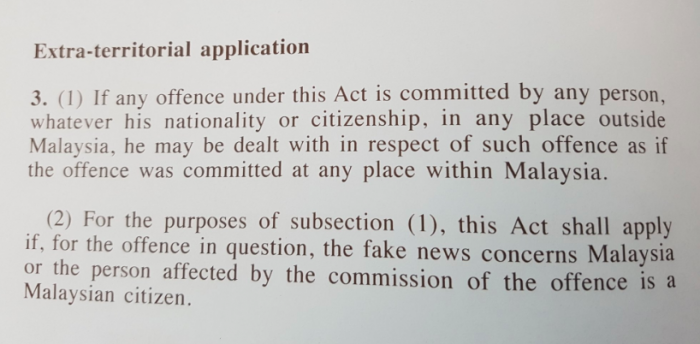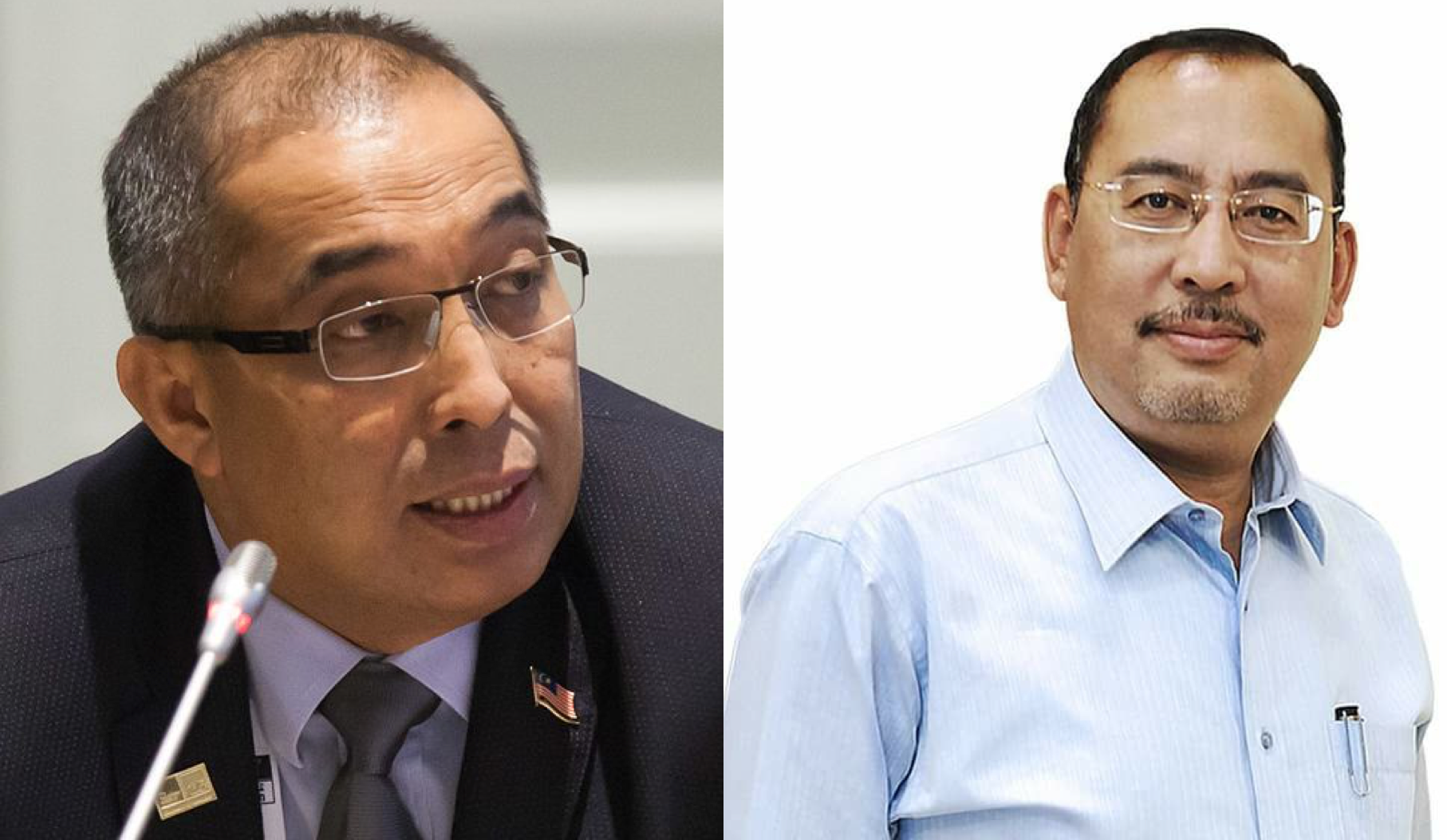So Malaysia's Anti-Fake News Bill, that was tabled in the Dewan Rakyat (Lower House of Parliament) on March 26, is expected to pass fairly easily.
After all, the ruling Barisan Nasional (BN) coalition has a majority in the House. But what does this mean for international media covering the alleged 1MDB scandal?
1MDB
The Bill comes in the wake of the 1MDB allegations related to Malaysia's Prime Minister Najib Razak.
Najib is accused of misappropriating money from the state investment fund, but has steadfastly denied those charges and maintained that the money found in his account was from a charitable donation by the Saudi Arabian government.
Interestingly, the Bill itself contains what looks like a reference to the 1MDB scandal, under a section titled "Illustrations" of Fake News.
 Screen shot via Ong Kian Ming's Twitter.
Screen shot via Ong Kian Ming's Twitter.
The Bill also makes it clear that it gives the Malaysian authorities the power to prosecute entities outside Malaysia's borders.
 Screen shot via Ong Kian Ming's Twitter.
Screen shot via Ong Kian Ming's Twitter.
The US Department of Justice's investigation into the 1MDB scandal is currently ongoing. US Attorney-General Jeff Sessions called it "kleptocracy at its worst" and said in Dec. 2017:
"Today, the U.S. Department of Justice is working to provide justice to the victims of this alleged scheme."
[related_story]
Minister said "can"
On March 26, after the Bill was tabled in Parliament, Minister for Communications and Multimedia Salleh Said Keruak denied that the Bill would be used to prevent reporting on the 1MDB allegations. He said:
"You can quote them, what they said."
When asked if that would be considered "spreading Fake News", he said:
"No, no no."
There is no ban in reporting on 1MDB, Malaysia Communications & Multimedia minister Salleh Keruak speaking to foreign journalists after anti fake news bill was tabled in parliament . pic.twitter.com/7t6HbQwXGT
— Melissa Goh (@MelGohCNA) March 26, 2018
Deputy Minister said no
However, this is at odds with what his own Deputy Minister said earlier.
Jailani Johari, the Deputy Minister for Communications and Multimedia, said on March 21 that any information related to 1MDB that is not verified by the government is considered Fake News.
He said that the allegations have already been investigated by the police and the Attorney-General, and their reports have been presented to the multi-partisan Public Accounts Committee in Parliament.
According to Jailani, the recommendations from the PAC report have been accepted and implemented by the government. He added:
"As such, the Government views that other than the information that has been verified by the Government, all other information is deemed as fake news."
Strong resistance
The Bill has been met with stiff opposition within Malaysia itself.
Malaysian MP Ong Kian Ming questioned the Bill's definition of Fake News in a Tweet, asking who gets to decide what news is false.
And a group of 16 civil society groups published an open letter opposing the Bill, voicing concerns that it could be used to clamp down on free speech and reporting of criminal activities.
In their joint letter, they said:
"In the context of the impending general elections, we are concerned that the “fake news” bill could be used as a dragnet to criminalise reporting on government misconduct, the expression of critical opinions, and the speech of the political opposition."
Top image adapted from R. Farrell, ITU Pictures via Wikimedia Commons and Jailani Johari's Facebook page.
Here’s a totally unrelated but equally interesting story:
If you like what you read, follow us on Facebook, Instagram, Twitter and Telegram to get the latest updates.
